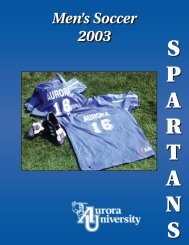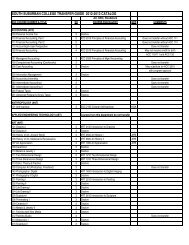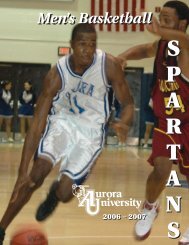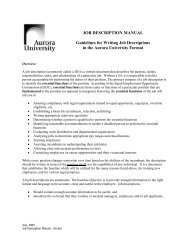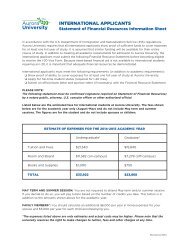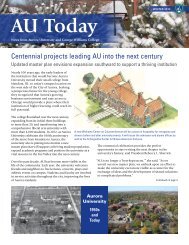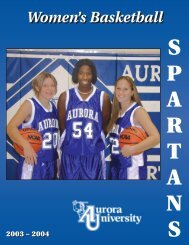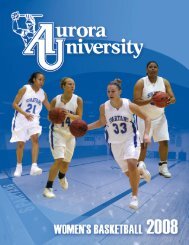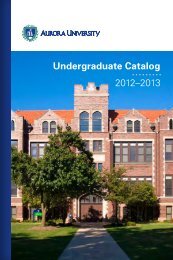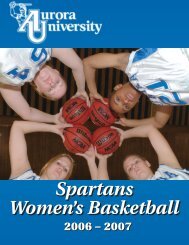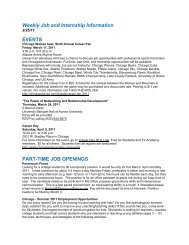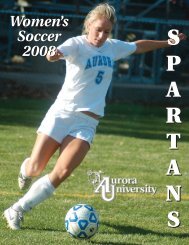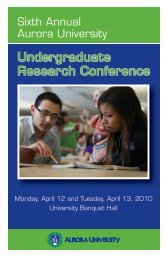Aurora University is May Term
Aurora University is May Term
Aurora University is May Term
You also want an ePaper? Increase the reach of your titles
YUMPU automatically turns print PDFs into web optimized ePapers that Google loves.
Course Dates/Times: Meets Fridays, <strong>May</strong> 14, 21, June 4from 6:00–10:00 p.m.; Saturdays, <strong>May</strong> 15, 22, June 5 from9:00 a.m.–4:00 p.m.Campus-Based CourseOfferings at the <strong>Aurora</strong>CampusGraduateMBA6080-01-MT Managing Information Technology3 semester hoursTh<strong>is</strong> course explores information as a critical resource ofany organization, what information systems are, how theyaffect organizations, and how they can make an enterpr<strong>is</strong>emore efficient and competitive. Business systems concepts,ethical aspects, global information and the Internet,and current technological <strong>is</strong>sues are studied.Prerequ<strong>is</strong>ites: BUS3200.Instructor: Dr. David DulanyCourse Dates/Times: Class meets <strong>May</strong> 10–29, 2010 on Tuesday,Wednesday and Thursday evenings from 6:00–10:00p.m.; Dunham Hall, Room 201.SPED6550-01-MT Introduction to Educational Research2 semester hoursCandidates will receive an overview of qualitative andquantitative research paradigms. The course will encompassthe efficacy of use of basic stat<strong>is</strong>tical methods, includingcorrelation, testing of means, analys<strong>is</strong> of variance,and regression. The focus will be on the in-depth understandingand evaluation of research from peer-evaluatedjournals of the field and in conducting more advancedaction research. Enrollment limited to 15 students.No prerequ<strong>is</strong>ites.Instructor: Dr. Kathleen BradleyCourse Dates/Times: Class meets <strong>May</strong> 11–13, 18–20; Tuesday,Wednesday and Thursday evenings from 6:15–10:15p.m.; Institute for Collaboration, Room 212.SPED6550-02-MT Introduction to Educational Research2 semester hoursCandidates will receive an overview of qualitative andquantitative research paradigms. The course will encompassthe efficacy of use of basic stat<strong>is</strong>tical methods, includingcorrelation, testing of means, analys<strong>is</strong> of variance,and regression. The focus will be on the in-depth under-29



